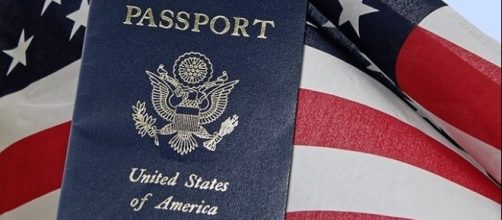Registered child sex offenders traveling outside of the United States will now need passports that each have a unique identifier. The U.S. Department of State announced on Wednesday that started revoking child sex offenders’ passports. Such offenders will have to apply for new passports that present the unique identifiers, bearing their status as a registered offender.
The State Department, which is responsible issuing U.S. passports, is currently endeavoring full compliance with International Megan’s Law (IML) passed by Congress on February 8, 2016.
The law was enacted to help curb child exploitation and child sex tourism. IML is also intended to bolster the Justice Department’s capability for tracking convicted offenders’ international travel, CNN reported.
Convicted offender status appearing on back cover of passports
Gone are the days when convicted child sex offenders, even first time applicants, will have a U.S. passport minus the identifier. The notice, which will be printed inside the back cover of each affected passport, will read, “The bearer was convicted of a sex offense against a minor,” the Chicago Tribune noted. Additionally, the identifier states that the passport holder is “a covered sex offender” under the law – 22 United States Code Section 212b(c)(l).
The State Department issued a news release on October 30 that explains why registered sex offenders affected by IML cannot have passport cards. The notification statements won’t fit on the cards due to space constraints. IML also comes with a share of critics, PBS reported. Civil libertarians, for instance, claim the law is too broad and targets “only one category of a convicted felon.”
Murder of Megan Kanka inspired state registries and international law
The inspiration for IML and its predecessor, Megan’s Law, was 7-year-old Megan Kanka from New Jersey. In 1984, the little girl was murdered in New Jersey by a convicted sex offender. After she was murdered, several states enacted and created publicly accessible sex offender registries.
On Wednesday, PBS noted, Congress was informed that government agencies commenced the IML passport requirement.
The State Department plans to contact offenders who are affected by IML “as soon as” U.S. Immigration and Customs Enforcement (ICE) at the Department of Homeland Security provides the names needed for notification. ICE is tasked with identifying child sex offenders, PBS reported. As well, ICE is the only government agency enabled to either add or take someone off of the list.
Offenders’ passports are still valid passports
ICE is invoking a vetting protocol, according to PBS. The purpose aims to prioritize the names and give them to the State Department. Until passports are formally rescinded, registered offenders who are affected can still travel overseas.
After affected passports are complete with the required unique identifier, sex offenders can still travel outside the U.S., according to the State Department and PBS. The passports under the IML mandate will be equally valid as those that are issued to non-offenders.
American citizens traveling abroad must abide by host countries’ laws
Important to keep in mind, however, is that other countries might have strict travel restrictions or prohibit previously convicted felons from traveling unencumbered by their past. American citizens, as a whole, are subject to other countries’ rules, regulations, and entry laws.


